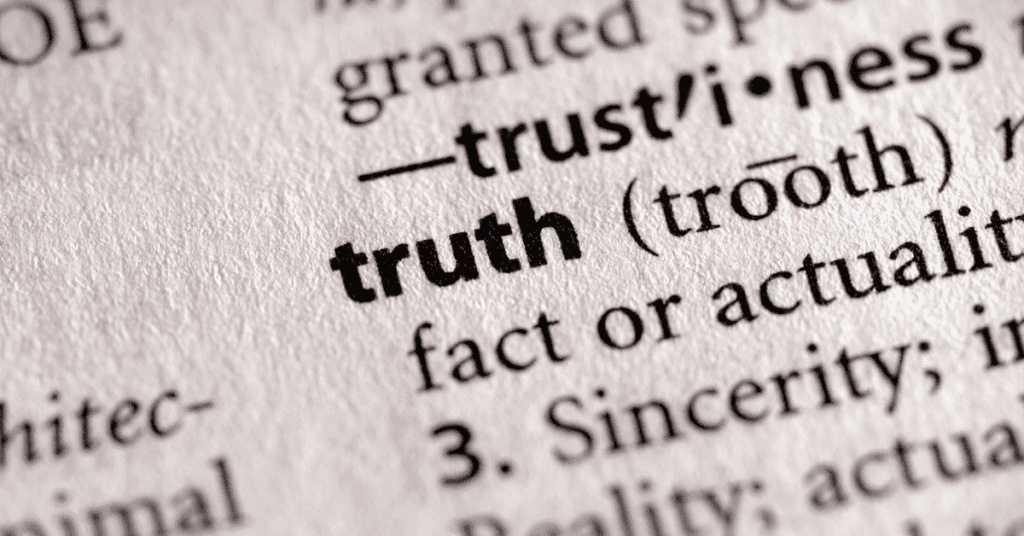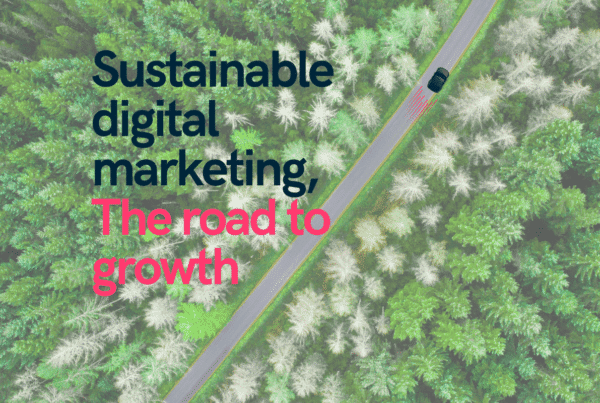
Table of Contents
Why Ethics Matter in Digital Marketing
In today’s crowded digital space, it’s easy to get lost in a sea of clickbait and misinformation. But at its core, effective marketing is built on trust. Every interaction, whether it’s an ad, a social media post, or a customer review, shapes how people perceive a brand. That’s why ethical practices in digital marketing are essential to building genuine, lasting relationships with audiences.
Building Trust and Transparency with Audiences
People support brands they believe in. By sharing clear information, avoiding misleading advertising, and being upfront about limitations, you show respect for your audience. This fosters trust and keeps customers coming back.
Protecting Consumer Privacy and Data
We all encounter data collection daily, whether it’s loading a website, using AI tools, or posting on social media. Every action leaves a digital footprint. With the growing volume of personal data being collected, privacy has become a serious concern.
Today’s customers want clarity and control. That means being transparent about what data is collected, minimising collection to only what’s necessary, and ensuring full compliance with privacy laws.
Avoiding Manipulation and Misleading Tactics
Customers can sense when something feels off. Manipulative tactics like misleading headlines, exaggerated claims, or dark patterns might boost clicks in the short term, but they erode trust quickly. Ethical design and honest content lead to better outcomes. When users feel respected, they’re more likely to engage, return, and build a lasting relationship with your brand.
Key Ethical Considerations in Digital Marketing

Honesty in Advertising and Messaging
Be clear and truthful about what your product or service offers. Overpromising or glossing over limitations may lead to disappointment and damage your business’s credibility. Transparency builds trust and sets realistic expectations, which leads to more satisfied, loyal customers.
Responsible Use of Consumer Data
Respect customer data by collecting only what’s needed and always with consent. Privacy-first approaches are part of ethical and sustainable marketing efforts. Clear communication about how data is used helps build trust and shows that you value your users’ rights.
Inclusivity and Representation in Campaigns
Effective marketing reflects the diversity of the real world. Campaigns should be inclusive, avoid stereotypes, and represent different backgrounds, identities, and experiences authentically. The power of true representation should never be underestimated; it makes users feel seen, and authenticity is the key to ethical digital marketing.
Sustainability and Environmentally Responsible Marketing
The importance of ethical marketing extends to the environment. Instead of “greenwashing,” showcase real, measurable efforts toward sustainability. That might include switching to green web hosting, reducing your digital carbon footprint, or working toward certifications like B Corp. Actions speak louder than words.
Common Ethical Issues in Digital Marketing

- Greenwashing: Claiming to be eco-friendly without proof.
- Data misuse: Over-tracking or hiding how customer info is used.
- Clickbait: Headlines that don’t match the content, product, or service.
- Hidden sponsorships: Influencers not disclosing paid partnerships.
These hurt trust and put brands at risk.
AI Ethics in Digital Marketing
AI drives many modern marketing strategies, from personalised ads to automated content. But its use raises key ethical considerations. To build trust, brands must balance efficiency with fairness, transparency, and most importantly, privacy.
Personalisation vs. Privacy Concerns
AI personalisation helps connect people with the right product or service. But it also relies on heavy data collection, which can put personal data at risk. Ethical brands keep things privacy-first: gather only what’s essential, clearly explain how customer data is used, and always ensure compliance with regulations. This shows respect for your customers and fosters trust.
Bias in Algorithms and Targeting
AI systems learn from data, and when that data carries biases, the results reflect them. This can manifest as harmful stereotypes, underrepresentation of certain groups, or unfair targeting. To ensure fairness, diversity, and ethical integrity, it’s essential to conduct regular audits of AI tools, uncover hidden biases, and correct them before they impact your campaigns.
Responsible Use of AI in Content Creation

AI-generated copy, visuals, or ads can boost marketing efforts, but without human review, mistakes or misleading advertising can slip through. Marketers should use AI as support, not a substitute. Checking for accuracy, inclusivity, and honesty ensures campaigns remain ethical.
Tips for Ethical Digital Marketing
Considering ethics in digital marketing means actively choosing practices that build trust, respect consumers, and support long-term success.
Prioritise Transparency and Clear Communication
People value honesty. Whether you’re promoting a product or service or explaining your brand values, use clear and accurate messaging. Instead of resorting to misleading ads, overblown promises, or fine-print traps, lead with transparency. Transparency in marketing campaigns not only fosters trust but also strengthens customer loyalty.
Adopt Privacy-First Data Collection Strategies
In an era of relentless data collection, how brands manage personal data is important. Instead of gathering unnecessary information, be selective and explain why you need certain details. Always obtain consent and ensure compliance with data protection laws. Providing control to customers over their customer data shows social responsibility and creates a stronger relationship that’s built on trust.
Audit AI Tools and Content for Bias or Inaccuracy
AI can be a game-changer for marketing, helping teams work smarter and reach the right audiences more effectively, but it’s not without risks. Things like biased targeting or misleading content can slip through. That’s why it’s important to regularly review what your automated tools and AI systems are producing. Make sure your content is fair, inclusive, and accurate. Human oversight is key to keeping your marketing ethical, representative, and grounded in good practices.
Showcase Genuine Sustainability Efforts
Today’s consumers care for brands that act with ethical and sustainable values. But false claims, like greenwashing, undermine credibility. If sustainability is part of your marketing efforts, back it up with real actions, such as eco-friendly packaging, using green hosting, or reduced energy use.
Highlight measurable progress, not vague promises. This demonstrates the importance of ethical choices and shows real social responsibility.
Building a Responsible Digital Future

Make a meaningful difference with ethical and sustainable digital marketing. At Solve Web Media, ethics are built into everything we do, from green hosting to honest content. Ready to grow your business the right way?





